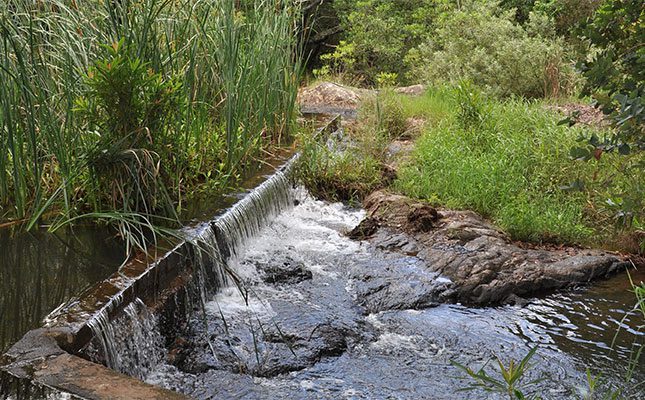
“The faeces literally run into our rivers,” Nancy O’Farrell, manager of the Crocodile River Irrigation Board told Farmer’s Weekly. “It gets reported but nothing is done about it. There is simply no change in the monitoring of what flows into the rivers, or any compliance.”
She said that ill-maintained infrastructure by local municipalities at waste treatment plants was largely the reason for the flow of excrement into the Lowveld’s rivers. “The excuse is always made that there is no money to fix the infrastructure. But residents, including farmers, pay millions of rands every year for their water.”
In May, the Inkomati-Usuthu Catchment Management Agency opened a criminal case against the City of Mbombela for discharging partially treated sewage into the environment, and subsequently into farmers’ irrigation dams.
Earlier this year, Mbombela also reported two incidents where sewage water pipes had burst, discharging effluent into the Crocodile River catchment area.
Minutes from the Crocodile Catchment Stewardship Forum meeting held on 16 May showed that the Crocodile River and Elands River had
non-compliant levels of E. coli.
Levels were up to 100 colony forming units (CFU) per 100ml. The acceptable standard for safe water is 0CFU/100ml.
A lack of infrastructure to handle effluent from informal settlements was also of increasing concern.
Wilscott Radley, chairperson of the Onderberg Farmers Union, said that the increase in informal settlements popping up along the river banks was problematic, since there was no infrastructure to handle sewage. “When the area gets a lot of rain, the waste runs into the rivers and ends up in the irrigation water.”
Denys Snyman, farm manager of Barberton Valley Plantations, echoed Radley’s concern over the increase in informal settlements. “Three years ago, the E. coli was unmeasurable in the top catchment area of the Groot Komati River,” Snyman said.
“This year’s water tests show that levels have tripled. The informal settlements along the rivers are getting bigger and bigger. We have approached the municipalities because they are not putting any infrastructure in place, but it falls on deaf ears.”
Radley added: “Both the Malelane and Barberton areas produce fruit and vegetables for local and export markets. “If our produce tests positive for contaminants we could lose our markets. We are in a very precarious position.”
Snyman said that E. coli was a big threat to export cops like blueberries. “Macadamias have a thick shell, so the threat to human health is less, but it still poses a significant threat to our exports.
“If we are labelled as a country whose produce is contaminated, our exports will be blocked. It also increases our operating costs since water needs additional purification before it can be used.”
Get trusted farming news from Farmers Weekly in Google Top Stories.
➕ Add Farmers Weekly to Google ✔ Takes 10 seconds · ✔ Remove anytime






